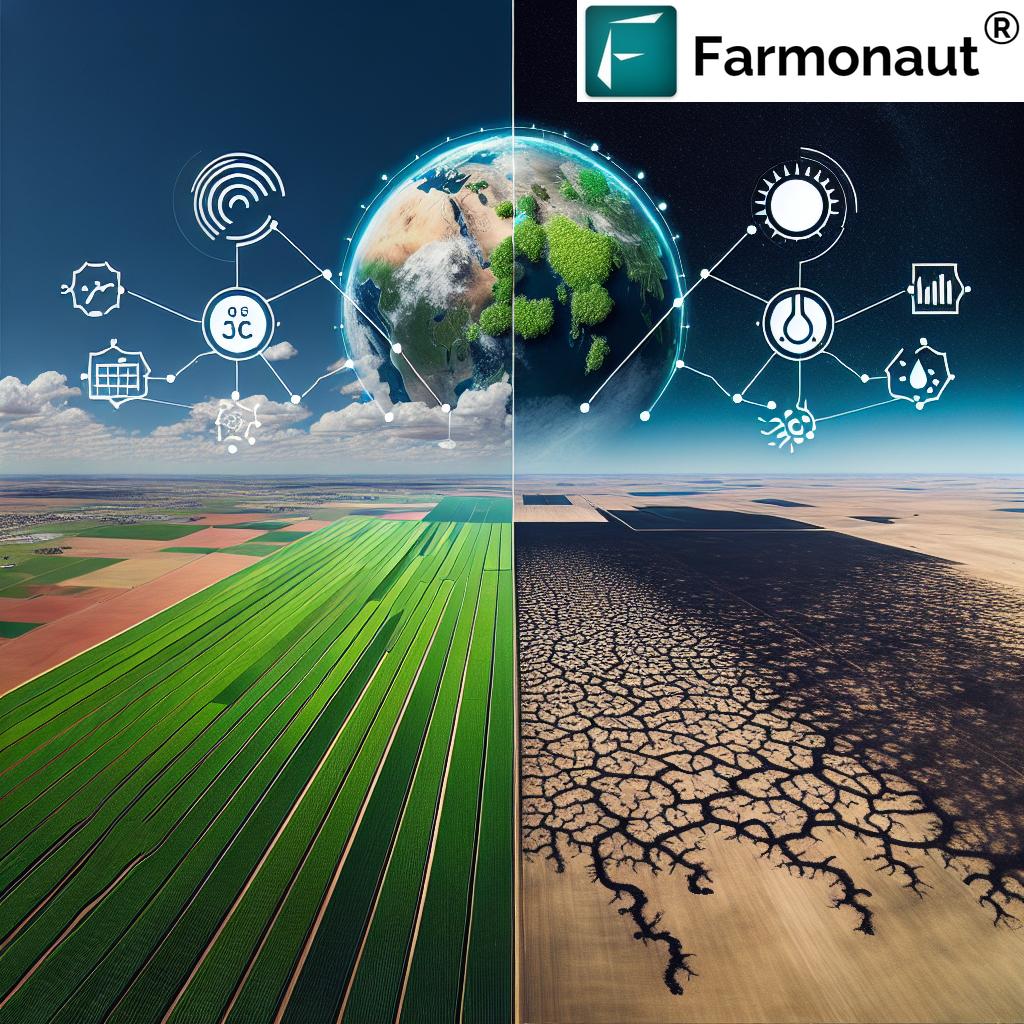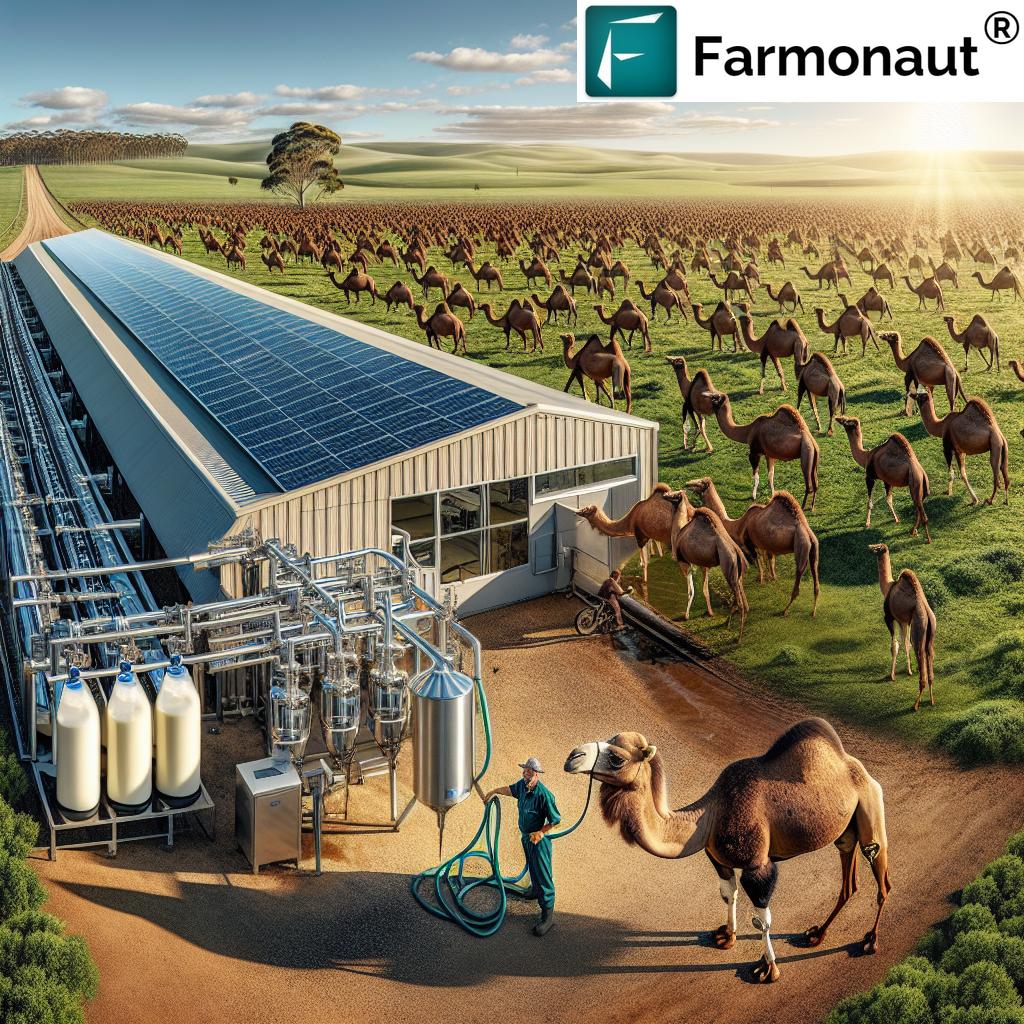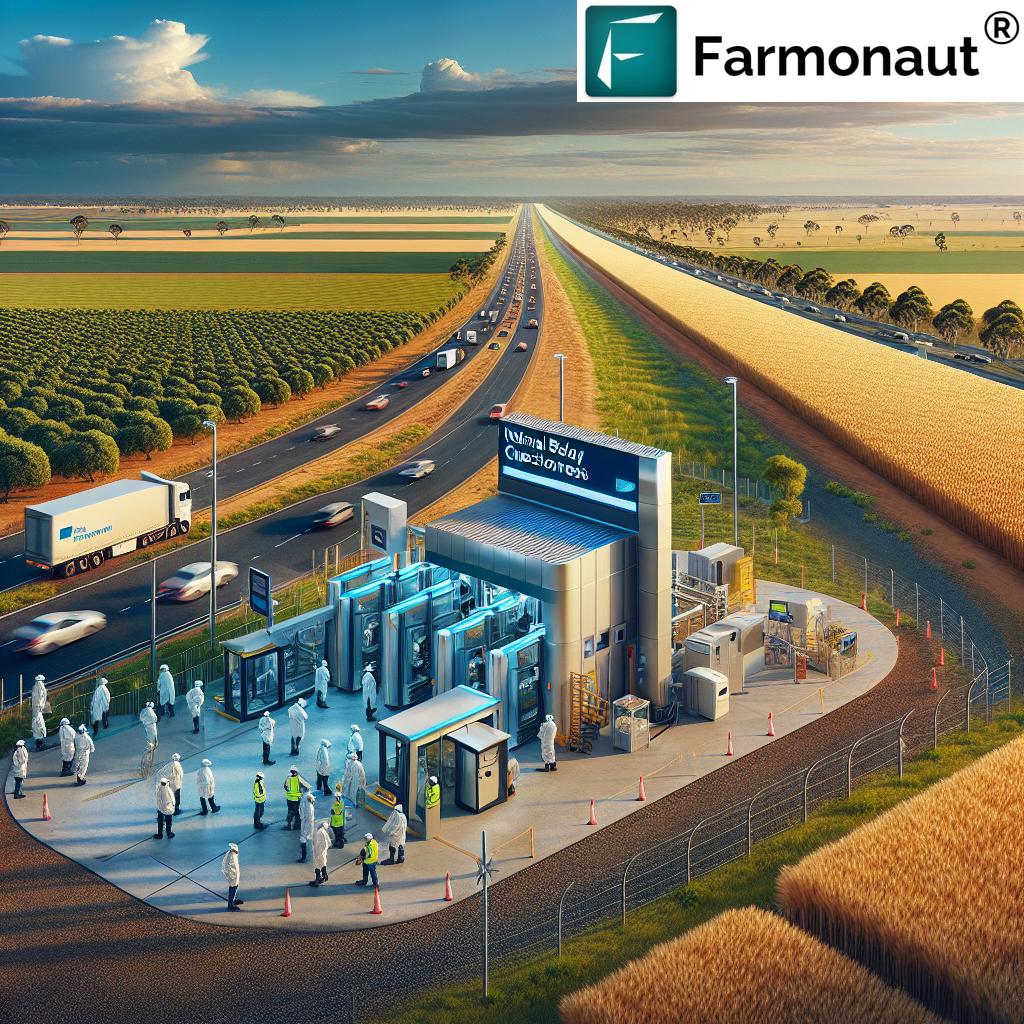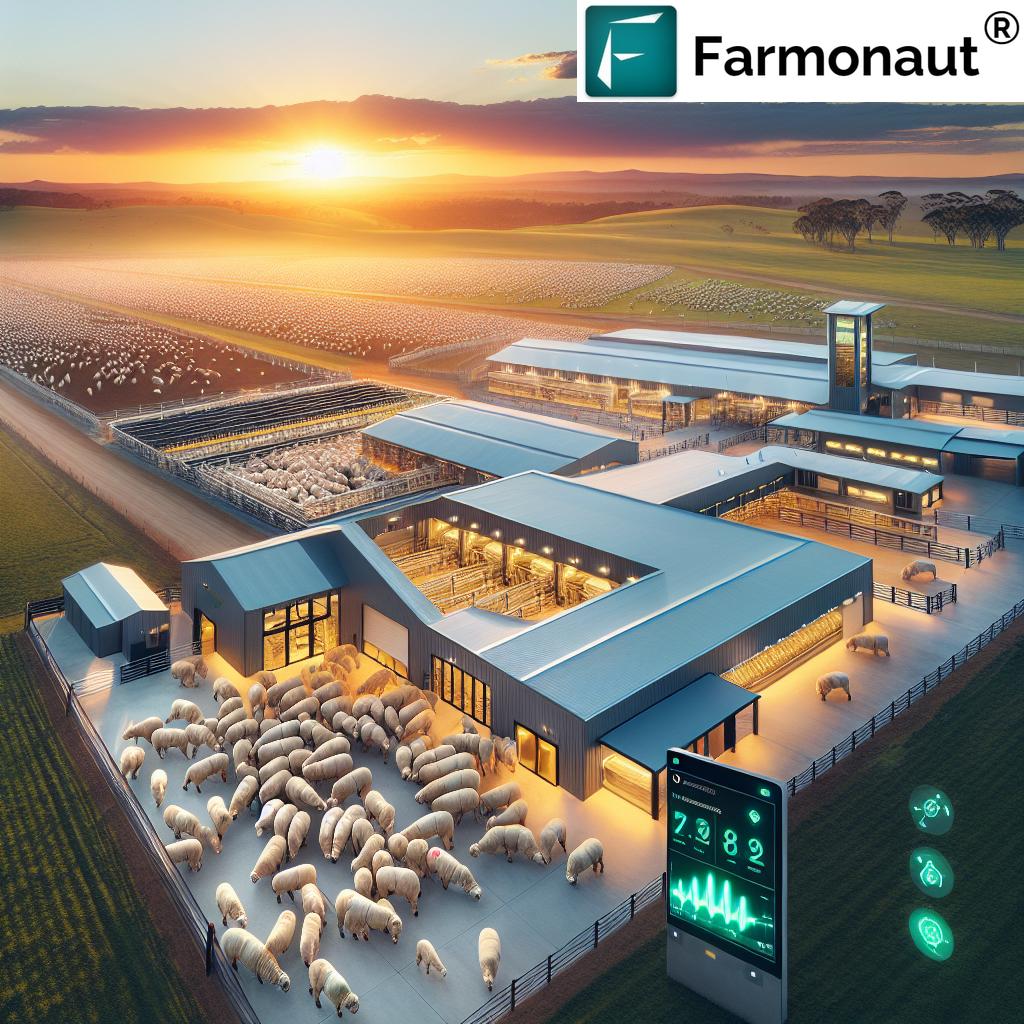Queensland’s Reef Regulations: Balancing Sustainable Farming and Environmental Protection
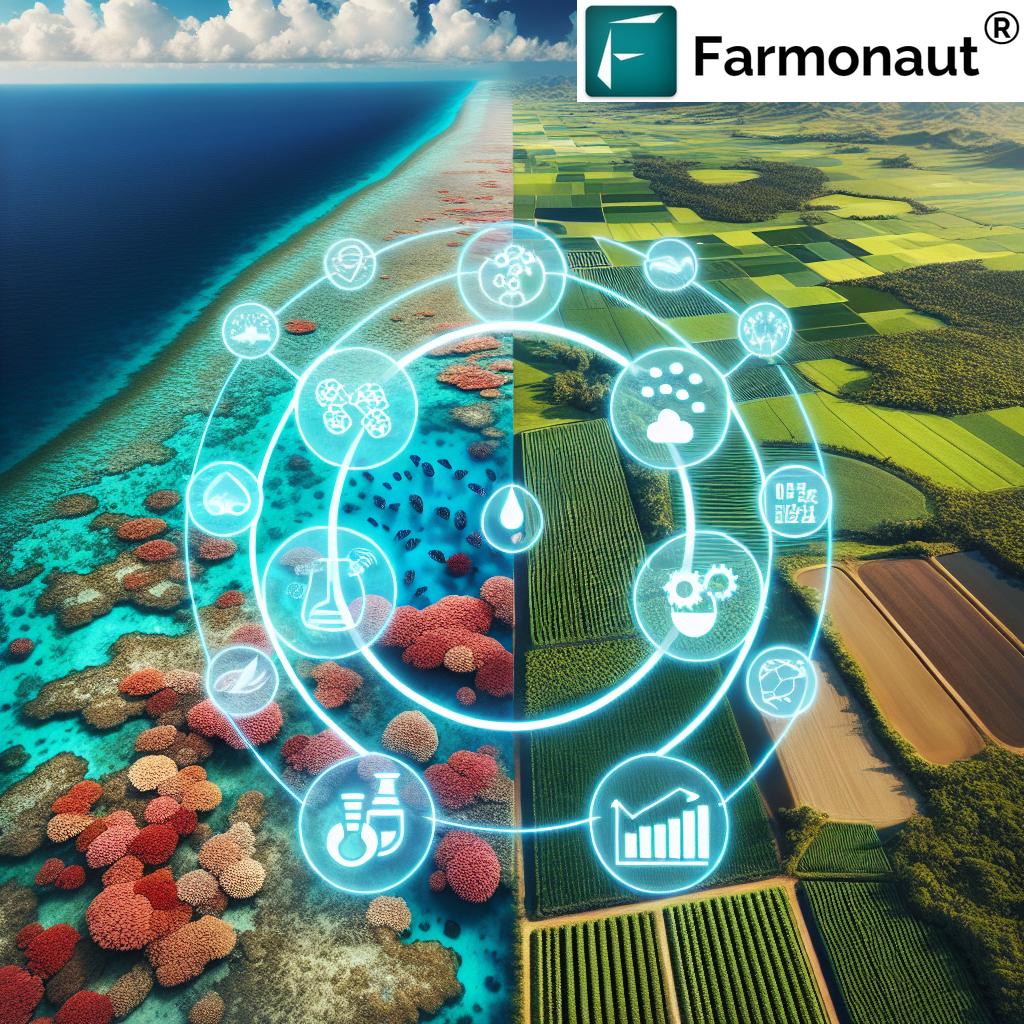
“Queensland’s reef catchment regulations impact over 50% of the state’s agricultural land, affecting thousands of farmers.”
In the heart of Australia’s agricultural landscape, a delicate balance is being sought between sustainable farming practices and the preservation of one of the world’s most precious natural wonders – the Great Barrier Reef. As we delve into the complexities of Queensland’s reef regulations, we find ourselves at a crossroads where the livelihoods of rural communities and the health of our marine ecosystems hang in the balance.
The stringent environmental regulations in Queensland’s reef catchment areas have sparked a heated debate, pitting the urgent need for environmental protection against the practical realities faced by farmers and producers. At the center of this discussion is the pressing call for an independent Office of Science Quality Assurance, a body that would ensure that agricultural policies are firmly rooted in robust scientific evidence.
The Challenge of Reef Catchment Regulations
Farmers in Queensland are grappling with reef catchment regulations that, while well-intentioned, may not fully account for the intricate relationship between agricultural practices and water quality. These regulations, designed to protect the Great Barrier Reef from harmful runoff and sediment, have placed significant burdens on the agricultural community.
- Stringent controls on fertilizer use
- Restrictions on land clearing and development
- Mandatory record-keeping and reporting requirements
- Limitations on certain agricultural practices in sensitive areas
While these measures aim to reduce the environmental impact of farming activities, they have also raised concerns about their practicality and potential economic consequences for rural communities.
The Proposed Reef Regulation Reversal Bill
In response to the challenges faced by farmers, the Reef Regulation Reversal Bill has been proposed. This bill aims to alleviate some of the regulatory burdens while maintaining a focus on environmental risk management plans. The key objectives of the bill include:
- Streamlining compliance processes for farmers
- Encouraging voluntary adoption of best management practices
- Providing more flexibility in how environmental goals are achieved
- Balancing economic sustainability with environmental protection
Stakeholders from various sectors are advocating for a balanced approach that protects both the Great Barrier Reef and the livelihoods of rural communities. This approach recognizes the vital role that farmers play in environmental stewardship and seeks to empower them with the tools and knowledge needed to implement sustainable practices.
The Role of Independent Science in Shaping Regulations
At the heart of the debate surrounding reef regulations is the call for an independent Office of Science Quality Assurance. This proposed body would play a crucial role in ensuring that agricultural policies and environmental regulations are grounded in robust, peer-reviewed scientific evidence.
The importance of evidence-based policy-making cannot be overstated, especially when it comes to issues as complex as the interaction between agriculture and reef ecosystems. An independent scientific body would:
- Provide unbiased assessments of environmental impacts
- Evaluate the effectiveness of current and proposed regulations
- Identify knowledge gaps and prioritize research needs
- Facilitate collaboration between scientists, policymakers, and farmers
By basing decisions on sound scientific principles, we can develop regulations that are both effective in protecting the environment and fair to the agricultural community.
Sustainable Agriculture in Reef Areas: A Delicate Balance
Achieving sustainable agriculture in reef catchment areas requires a nuanced understanding of local ecosystems, agricultural practices, and economic realities. Farmers in these regions face unique challenges, including:
- Managing soil erosion and sediment runoff
- Optimizing fertilizer use to minimize nutrient pollution
- Adapting to changing climate patterns
- Implementing water-efficient irrigation systems
To address these challenges, innovative approaches and technologies are needed. This is where companies like Farmonaut come into play, offering cutting-edge agritech solutions that can support farmers in navigating regulatory challenges while improving sustainability.

Farmonaut’s satellite-based farm management solutions provide valuable tools for farmers operating in sensitive reef catchment areas. By leveraging advanced technology, farmers can:
- Monitor crop health in real-time
- Optimize resource use, including water and fertilizers
- Track and manage environmental impacts
- Implement precision agriculture techniques
These capabilities not only help farmers comply with regulations but also improve overall farm productivity and sustainability.
Explore Farmonaut’s web application to see how technology can support sustainable farming practices in reef areas.
The Impact of Regulations on Regional Producers
The implementation of reef regulations has had far-reaching consequences for regional producers in Queensland. While the intention to protect the Great Barrier Reef is commendable, the practical implications for farmers have been significant:
- Increased compliance costs
- Reduced flexibility in farm management decisions
- Potential limitations on productivity and expansion
- Challenges in adapting to new regulatory requirements
These impacts have led to growing concerns about the long-term viability of farming in reef catchment areas and the potential for unintended consequences, such as reduced food production or increased reliance on imports.
Farmer Advocacy Groups: Voicing Concerns and Proposing Solutions
In response to the challenges posed by reef regulations, farmer advocacy groups have emerged as powerful voices in the ongoing debate. These organizations play a crucial role in:
- Representing the interests of farmers and rural communities
- Providing feedback on the practical implications of regulations
- Proposing alternative approaches to environmental protection
- Facilitating dialogue between farmers, scientists, and policymakers
By engaging with these advocacy groups, policymakers can gain valuable insights into the realities of farming in reef catchment areas and work towards more balanced and effective regulations.
“The Great Barrier Reef contributes approximately $6.4 billion annually to Australia’s economy, highlighting the need for balanced protection.”
The Role of Technology in Sustainable Farming
As we navigate the complexities of reef regulations, technology emerges as a powerful ally in the quest for sustainable agriculture. Innovative solutions, such as those offered by Farmonaut, can help farmers meet regulatory requirements while improving their operations:
- Satellite-based crop monitoring for precise resource management
- AI-driven advisory systems for optimized farming practices
- Blockchain-based traceability for transparent supply chains
- Data-driven insights for informed decision-making
Farmonaut’s API allows developers and businesses to integrate powerful satellite and weather data into their own systems, further advancing sustainable agriculture solutions. Explore Farmonaut’s API capabilities to see how technology can be leveraged for sustainable farming.
Environmental Risk Management Plans: A Path Forward
One of the key components of the proposed Reef Regulation Reversal Bill is the emphasis on environmental risk management plans. These plans offer a more flexible approach to achieving environmental goals while allowing farmers to tailor their practices to their specific circumstances. Key features of these plans include:
- Site-specific risk assessments
- Customized mitigation strategies
- Regular monitoring and reporting
- Adaptive management approaches
By focusing on outcomes rather than prescriptive measures, environmental risk management plans have the potential to achieve better results for both farmers and the environment.
The Importance of Water Quality Management
At the core of reef regulations is the critical issue of water quality management. The health of the Great Barrier Reef is intrinsically linked to the quality of water flowing from catchment areas. Effective water quality management in agricultural settings involves:
- Implementing erosion control measures
- Optimizing fertilizer application to reduce nutrient runoff
- Managing irrigation practices to minimize water waste
- Creating buffer zones along waterways
Farmonaut’s technology can play a crucial role in water quality management by providing farmers with real-time data on soil moisture levels and crop health, enabling more precise irrigation and fertilizer application.
Access Farmonaut’s mobile applications to harness the power of satellite technology for improved water management:
Comparative Analysis of Reef Regulations Impact
| Regulatory Aspect | Current Regulations | Proposed Changes | Potential Impact on Farmers and Environment |
|---|---|---|---|
| Water Quality Management | Strict runoff limits, mandatory reporting | Flexible targets based on risk assessment | Reduced compliance burden, potentially improved outcomes |
| Fertilizer Usage | Prescribed limits on application rates | Outcome-based approach with monitoring | Increased flexibility, potential for innovation |
| Sediment Control | Mandatory erosion control measures | Site-specific plans with regular reviews | Better tailored solutions, possible cost savings |
| Compliance Requirements | Extensive record-keeping and audits | Simplified reporting, focus on outcomes | Reduced administrative burden, maintained accountability |
| Role of Independent Science | Limited oversight of policy science | Establishment of independent quality assurance | Improved policy credibility, potential for more effective measures |
This comparative analysis highlights the potential shifts in regulatory approach and their implications for both farmers and environmental protection efforts.
The Future of Sustainable Agriculture in Reef Areas
As we look to the future, it’s clear that achieving a balance between sustainable farming practices and environmental protection in reef catchment areas will require ongoing collaboration, innovation, and adaptation. Key considerations for the future include:
- Continued investment in research and development
- Adoption of precision agriculture techniques
- Development of climate-resilient farming practices
- Enhanced education and training for farmers
- Ongoing dialogue between stakeholders
By embracing these principles and leveraging cutting-edge technologies like those offered by Farmonaut, we can work towards a future where agriculture and environmental protection coexist harmoniously in Queensland’s reef catchment areas.
The Role of Artificial Intelligence in Sustainable Agriculture
Artificial Intelligence (AI) is increasingly playing a crucial role in shaping the future of sustainable agriculture, particularly in sensitive areas like reef catchments. Farmonaut’s AI-driven solutions offer numerous benefits for farmers navigating complex regulatory environments:
- Predictive analytics for crop management
- Automated detection of potential environmental risks
- Personalized recommendations for sustainable practices
- Real-time monitoring of compliance with regulations
By harnessing the power of AI, farmers can make more informed decisions that balance productivity with environmental stewardship.
Discover how Farmonaut’s AI-powered solutions can revolutionize your farming practices:
Supporting Rural Communities Through Transition
As regulations evolve and farming practices adapt, it’s crucial to provide support for rural communities during this transition period. Key areas of support include:
- Financial assistance for implementing new technologies
- Training programs on sustainable farming techniques
- Mental health support for farmers facing stress
- Community engagement initiatives to foster resilience
By investing in rural communities, we can ensure that the transition to more sustainable practices is equitable and beneficial for all stakeholders.
Conclusion: Striking the Right Balance
The challenge of balancing sustainable farming practices with environmental protection in Queensland’s reef catchment areas is complex, but not insurmountable. By embracing evidence-based policies, leveraging innovative technologies, and fostering collaboration between all stakeholders, we can work towards a future where agriculture thrives alongside a healthy Great Barrier Reef.
As we move forward, it’s essential to remember that farmers are not just producers, but also stewards of the land. With the right support, tools, and policies in place, they can play a pivotal role in protecting one of the world’s most precious ecosystems while continuing to feed our growing population.
The journey towards sustainable agriculture in reef areas is ongoing, and it will require continued dedication, innovation, and adaptation. By working together and embracing solutions like those offered by Farmonaut, we can create a resilient and sustainable agricultural sector that coexists harmoniously with the natural wonders that make Queensland unique.
FAQ Section
Q: What are the main goals of Queensland’s reef regulations?
A: The primary goals are to protect the Great Barrier Reef by reducing harmful runoff and sediment from agricultural activities, while maintaining sustainable farming practices.
Q: How do reef regulations impact farmers in Queensland?
A: Farmers face increased compliance requirements, potential restrictions on land use and development, and may need to adapt their farming practices to meet environmental standards.
Q: What is the proposed Reef Regulation Reversal Bill?
A: It’s a proposed legislation aimed at reducing regulatory burdens on farmers while maintaining environmental protections through more flexible, outcome-based approaches.
Q: Why is an independent Office of Science Quality Assurance important?
A: It would ensure that agricultural policies and environmental regulations are based on robust, peer-reviewed scientific evidence, leading to more effective and fair policies.
Q: How can technology help farmers comply with reef regulations?
A: Technologies like Farmonaut’s satellite-based solutions can help farmers optimize resource use, monitor environmental impacts, and implement precision agriculture techniques to meet regulatory requirements more efficiently.
Farmonaut Subscriptions
By leveraging Farmonaut’s innovative solutions, farmers in Queensland’s reef catchment areas can navigate the complexities of environmental regulations while optimizing their agricultural practices. Our technology empowers farmers to make data-driven decisions, improve resource management, and contribute to the protection of the Great Barrier Reef.
For more information on how Farmonaut can support your farming operations in compliance with reef regulations, visit our API Developer Docs or download our mobile applications:
Together, we can work towards a future where sustainable agriculture and environmental protection go hand in hand, ensuring the prosperity of Queensland’s rural communities and the preservation of the Great Barrier Reef for generations to come.









